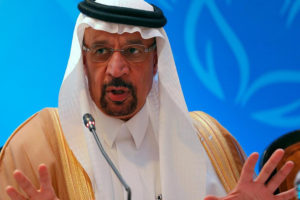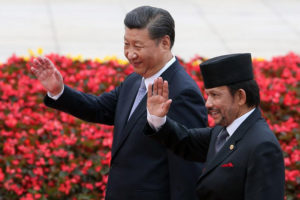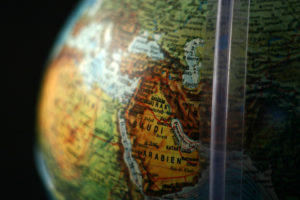
Feb 12 2011
So Hosni Mubarak is out. Vice President Omar Suleiman says that Mubarak has stepped down and handed over power to the military. This is a huge triumph for people power, and it will resonate across the Middle East and far beyond (you have to wonder what President Hu Jintao of China is thinking right now). The narrative about how Arab countries are inhospitable for democracy, how the Arab world is incompatible with modernity — that has been shattered by the courage and vision of so many Tunisians and Egyptians.
It’s also striking that Egyptians triumphed over their police state without Western help or even moral support. During rigged parliamentary elections, the West barely raised an eyebrow. And when the protests began at Tahrir Square, Secretary of State Hillary Rodham Clinton said that the Mubarak government was “stable” and “looking for ways to respond to the legitimate needs and interests of the Egyptian people.” Oops. So much for our $80 billion intelligence agency. On my Facebook fan page, I asked my fans (before the Tahrir protests began) what the next Tunisia would be. A surprising number said Egypt — if you were among them, you apparently did better than our intelligence community. Indeed, Egyptians in Tahrir told me that they were broadly inspired by America’s example of freedom, but that their greatest inspiration came from Tunisia and Al Jazeera. On Tahrir Square, there were signs saying “Thank you, Tunisia.” So, all of you Tunisians and Egyptians, “mabrouk” or “congratulations”! You’ve made history. The score in Egypt is: People Power, 1; Police State, 0.
But the game isn’t over, and now a word of caution. I worry that senior generals may want to keep (with some changes) a Mubarak-style government without Mubarak. In essence the regime may have decided that Mubarak had become a liability and thrown him overboard — without any intention of instituting the kind of broad, meaningful democracy that the public wants. Senior generals have enriched themselves and have a stake in a political and economic structure that is profoundly unfair and oppressive. And remember that the military running things directly really isn’t that different from what has been happening: Mubarak’s government was a largely military regime (in civilian clothes) even before this. Mubarak, Vice President Suleiman and so many others — including nearly all the governors — are career military men. So if the military now takes over, how different is it?
The military ostensibly played a neutral role in recent weeks, and protesters certainly feel much more sympathetic to the military than to the police. But some elements of the army have been involved in repression of pro-democracy protesters, including arrest and torture. The Guardian noted:
One of those detained by the army was a 23-year-old man who would only give his first name, Ashraf, for fear of again being arrested. He was detained last Friday on the edge of Tahrir Square carrying a box of medical supplies intended for one of the makeshift clinics treating protesters attacked by pro-Mubarak forces….
Ashraf was hauled off to a makeshift army post where his hands were bound behind his back and he was beaten some more before being moved to an area under military control at the back of the museum.
“They put me in a room. An officer came and asked me who was paying me to be against the government. When I said I wanted a better government he hit me across the head and I fell to the floor. Then soldiers started kicking me. One of them kept kicking me between my legs,” he said. “They got a bayonet and threatened to rape me with it. Then they waved it between my legs. They said I could die there or I could disappear into prison and no one would ever know. The torture was painful but the idea of disappearing in a military prison was really frightening.”
That kind of thing happened to a lot of people, and those millions of brave Egyptians who went to the streets were protesting not just against Mubarak but against the police state as a whole. May Mubarak’s resignation mark a milestone toward their goal — and I think it is, but it’s not the end of the journey. And let’s hope that the United States makes absolutely clear that it stands for full democracy, not just for some kind of false stability that derives from authoritarianism. The Obama administration missed the boat in the last few weeks, but I thought yesterday’s speech and statement by President Obama marked an improvement. Let’s hope it continues. May Mubarak’s resignation mark a new beginning — in Egypt, and also in wiser American policy toward Egypt and the Arab world.






